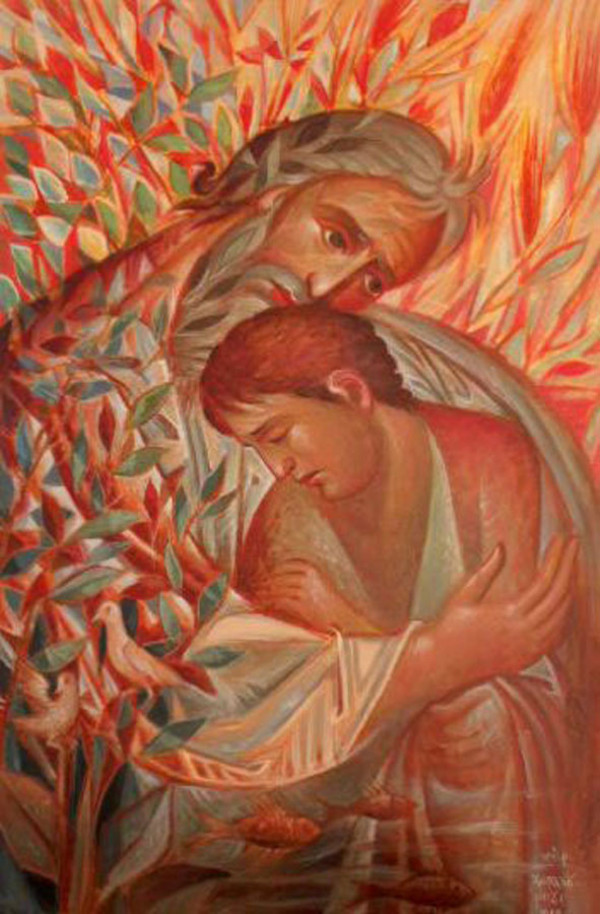Now the green blade rises from the buried grain,
Wheat that in the dark earth many years has lain;
Love lives again, that with the dead has been:
Love is come again, like wheat that springs up green.
Wheat that in the dark earth many years has lain;
Love lives again, that with the dead has been:
Love is come again, like wheat that springs up green.
In the grave they laid Him, Love Whom we had slain,
Thinking that He’d never wake to life again,
Laid in the earth like grain that sleeps unseen:
Love is come again, like wheat that springs up green.
Up He sprang at Easter, like the risen grain,
He that for three days in the grave had lain;
Up from the dead my risen Lord is seen:
Love is come again, like wheat that springs up green.
When our hearts are saddened, grieving or in pain,
By Your touch You call us back to life again;
Fields of our hearts that dead and bare have been:
Love is come again, like wheat that springs up green.
Now the Green Blade Rises
written by John MacLeod Campbell Crum, 1872-1958
as it appears in the Oxford Book of Carols, 1928
Ave Maria! Or rather, in keeping with this glorious Easter Sunday, I sing instead, Regina Caeli! Regina Caeli, laetare, alleluia! O Queen of Heaven, rejoice, alleluia! Sing for joy, O Mother of our Crucified Lord and Savior, for He has risen as He promised! Rejoice and be glad, O Virgin Mary, for your Son, our Beloved Jesus, is truly risen, alleluia!
Yes, "love is come again, like wheat that springs up green." This lovely Easter carol is a favorite of mine. Its very melody quickens within my heart the eternal joy of Christ's Resurrection. Two recordings can be found here and here. Both are excellent. The first one is more in keeping with the original 15th Century French melody, Noël Nouvelet, which is meant to be sung briskly. The second one is equally as well done, though tiny bit slower, plus it provides the lyrics in a slightly different version.
"Love lives again"...and so do we! "Thanks be to God, who gives us the victory through our Lord Jesus Christ" (1 Cor 15:57). Alleluia, alleluia, alleluia!
























